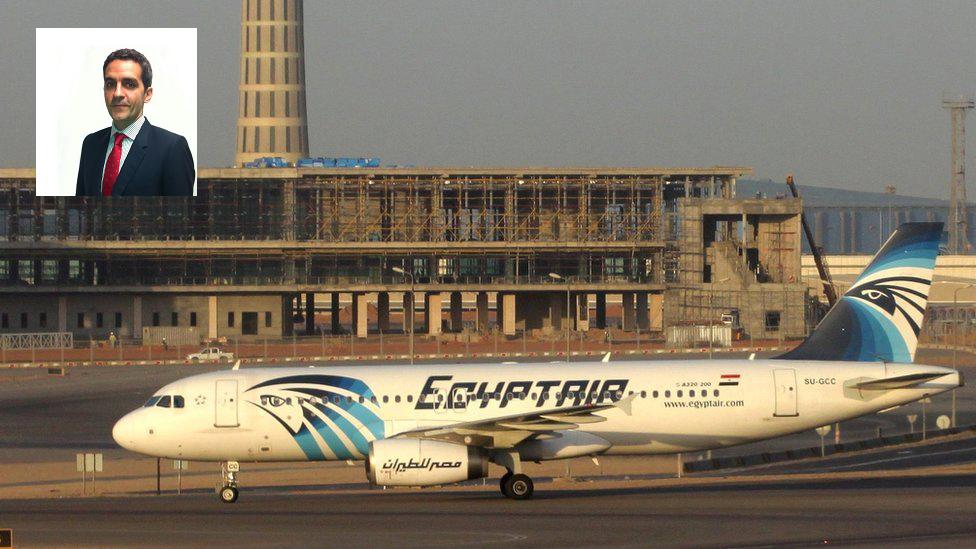Can Egypt's tourism recover from latest blow?
- Published
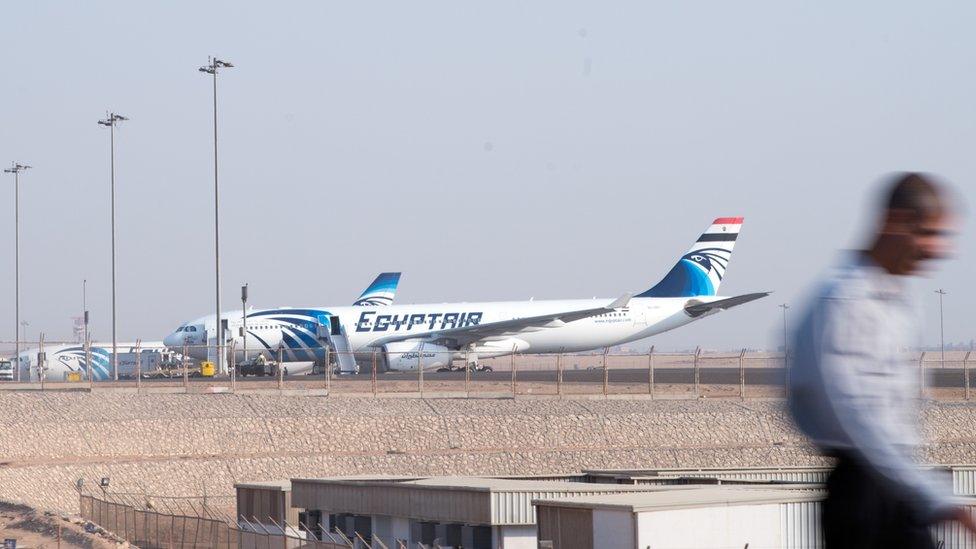
Whatever caused the disappearance of EgyptAir flight MS804, the effect on Egypt's tourism industry is likely to be harsh.
Tourism has long been a mainstay of the country's economy, which is the second largest in the Arab world after Saudi Arabia.
But in the light of recent attacks on Western tourists, and with large areas of neighbouring Libya controlled by so-called Islamic State (IS), foreign holidaymakers are reluctant to set foot there.
Before the fall of President Hosni Mubarak in 2011 as part of the short-lived Arab Spring, tourism employed more than one in 10 of the workforce and generated the equivalent of $12.5bn (£8.5bn) in revenue.
At that time, Egypt could boast nearly 15 million tourists a year, lured by such attractions as the pyramids in Cairo and the Red Sea resort of Sharm el-Sheikh.
Now the picture is quite different.
Although there is no warning against the resort itself, the UK Foreign Office advises against all but essential travel by air to and from Sharm el-Sheikh, after the downing of a Russian jet that took off from the resort in October last year.
Another Red Sea resort, Hurghada, was the scene of an attack in January by suspected IS militants, who stabbed three Western tourists, although their injuries did not prove to be life-threatening.
"Terrorists continue to plan and conduct attacks in Egypt," says the Foreign Office, external. "Further attacks are likely."
Losses inevitable
It is still unclear whether the EgyptAir plane fell victim to terrorism or whether an accident was to blame.
But either way, the Egyptian economy will suffer as a result, according to Dr Yeganeh Morakabati, an expert in international relations, risk and tourism at Bournemouth University.
"If it is terrorism, Egypt will be a victim," Dr Morakabati told BBC Radio 5 live.
"If it is a technical fault, people and the media will lay blame on Egyptian incompetence," she added. "I feel that if it is a technical fault, it is not any better for the Egyptian economy."
Mike Bugsgang, chief executive of the UK-based Association of Group Travel Organisers, also fears the possible consequences for Egyptian tourism.
"It's obviously an awful situation that's arisen," he told the BBC. "It's not yet proven that it was terrorism, but if it is, it's going to be a massive problem for the Egyptian tourism business, which is ongoing, particularly with the events that have taken place in the recent past."
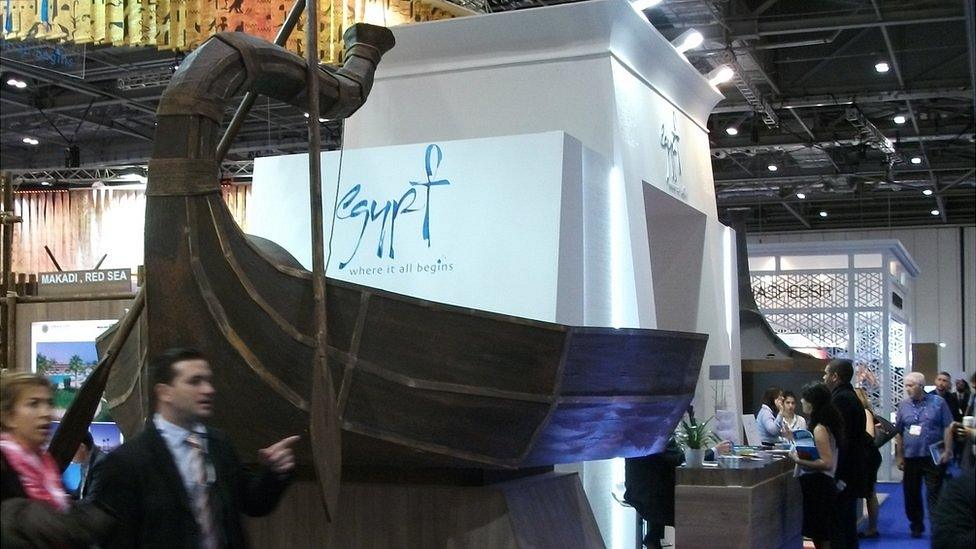
Egypt has worked hard to promote its tourism offer internationally
Small wonder, then, that the number of tourists in Egypt is declining. By 2013, it had fallen by one-third to under 10 million a year, and has undoubtedly slumped further since then.
And last year's revenue from tourism was just under half the 2010 figure, at $6.1bn (£4.2bn).
International tour operators can weather that kind of collapse in demand: they simply promote alternative destinations perceived as safer.
As Mr Bugsgang says, package holidaymakers have been switching their allegiance to countries such as Spain, which has seen a "huge upsurge" in summer bookings this year, and Bulgaria.
But it's terrible news for all the ordinary Egyptians who rely on foreign visitors for their livelihood: hotel workers, tourist guides, taxi drivers and stallholders in the local souks and bazaars.
The only ones whose interests are served are the armed Islamist groups determined to inflict economic damage and destabilise the government, not just in Egypt, but also in other once-popular destinations in the region, such as Tunisia.
Security drive
Not that the Egyptian authorities have been standing idly by and allowing the tourism industry to crumble. New security upgrades are in the pipeline, including a £20m programme to add more CCTV cameras and other measures, such as sniffer dogs.
Routine security checks are carried out on people entering Sharm el-Sheikh and the police regularly check vehicles in the towns of Sharm el-Sheikh and Hurghada.
"We have put a lot of new equipment in, we will continue to put a lot of equipment in. We're training and retraining the people," says Egypt's new tourism minister, Yehia Rashed, a former Marriott International executive who was appointed just two months ago with a brief to reinvigorate the industry.
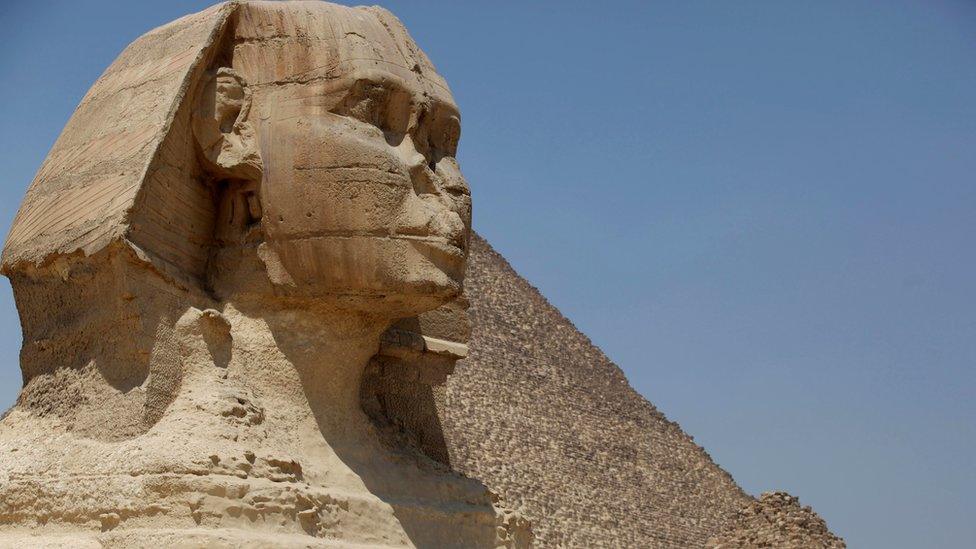
Egypt still has plenty to fascinate those who visit
But despite his claim that "Egypt is 100% secure", would-be visitors will take some convincing.
For his part, Mr Bugsgang feels that Egypt can recover from its current tourism troubles, but it will take time.
"Tourism destinations are extremely versatile and flexible in bouncing back," he says.
"We've seen examples of this over the years and there's no getting away from the fact that Egypt is very popular with British holidaymakers."
Mr Bugsgang says the Egyptians are investing "huge sums of money" in their security systems.
"I'm sure that the British travel industry will continue to support Egypt moving forward in any way it can, but in line with Foreign Office advice," he adds.
"I'm confident that it will bounce back, although not in the near future."
- Published19 May 2016
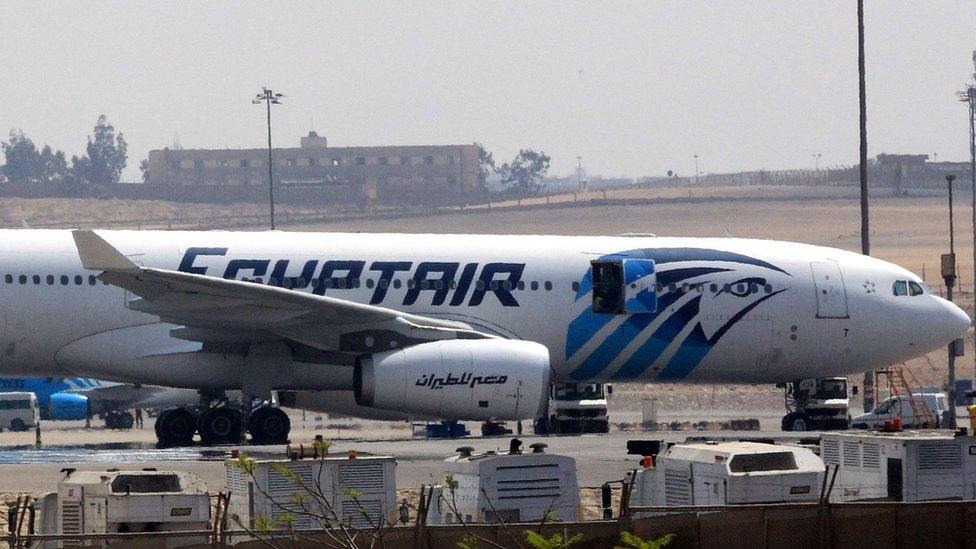
- Published7 July 2018
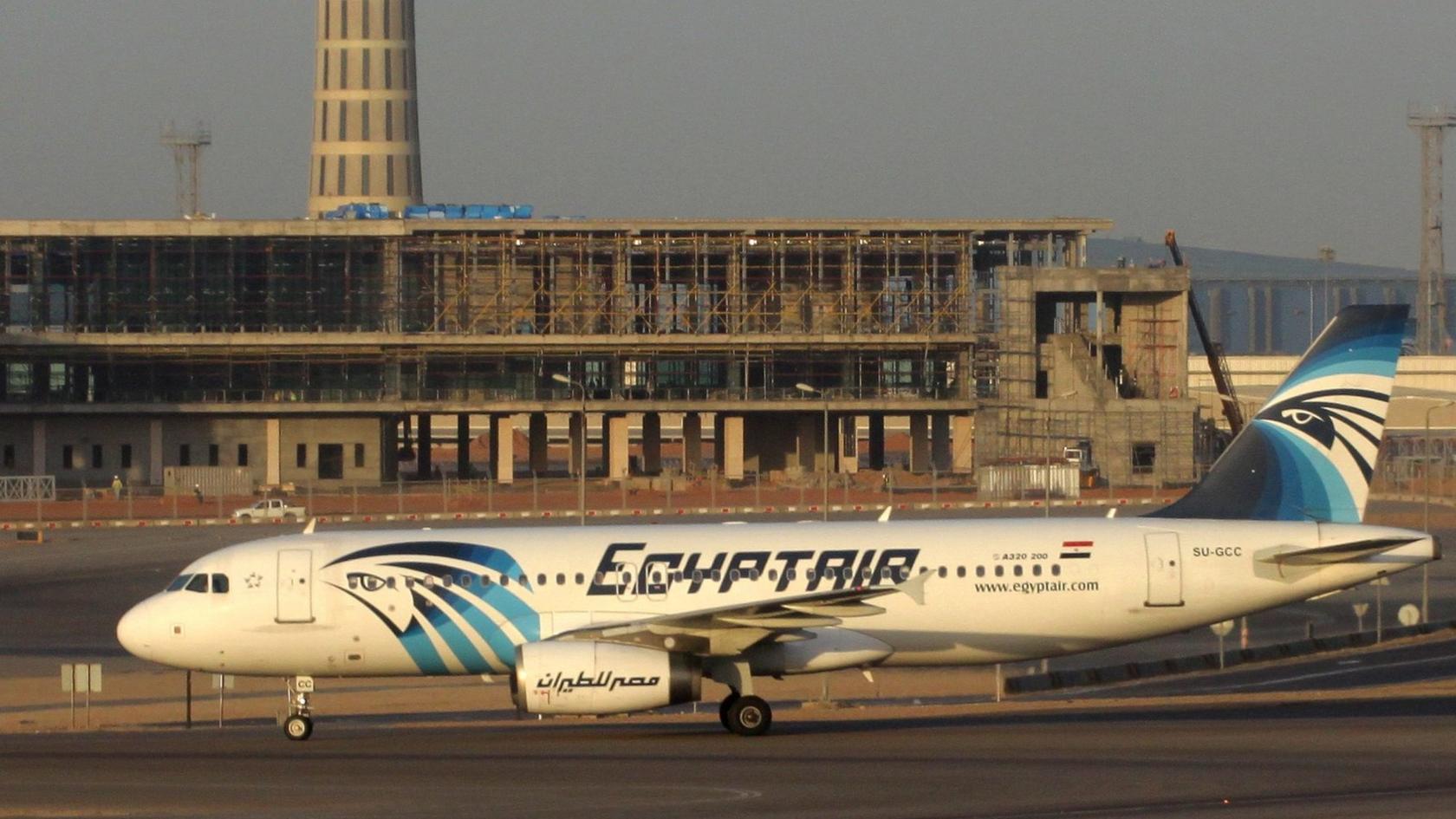
- Published23 May 2016

- Published19 May 2016
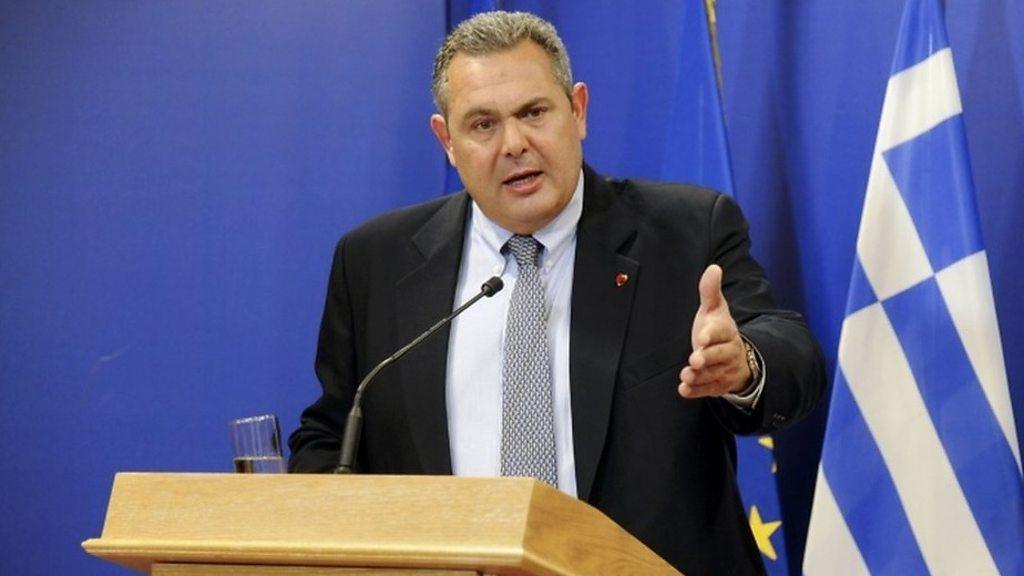
- Published19 May 2016
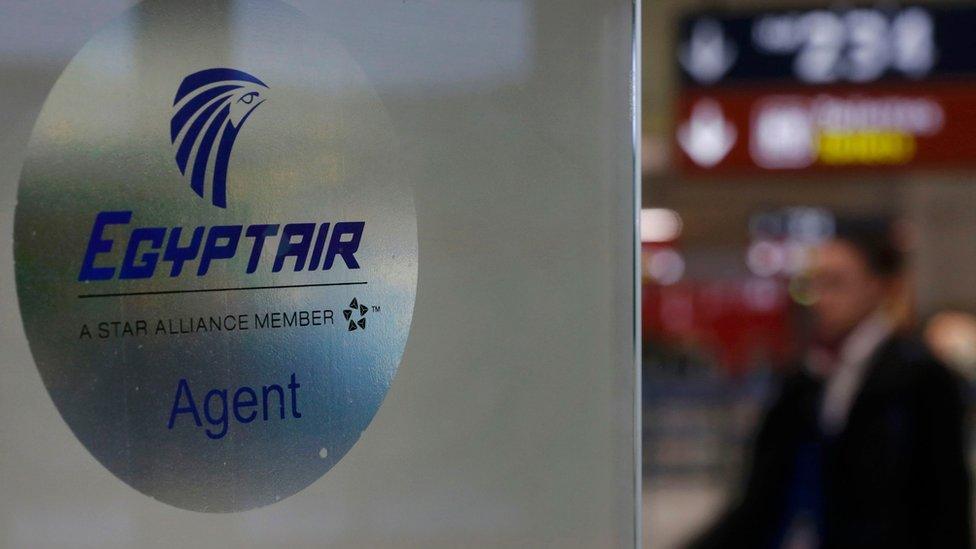
- Published19 May 2016
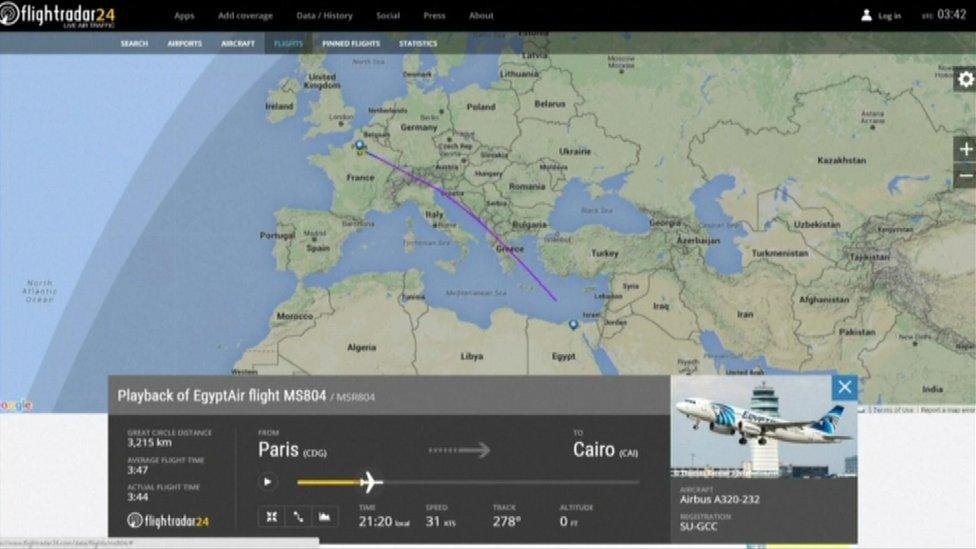
- Published19 May 2016
